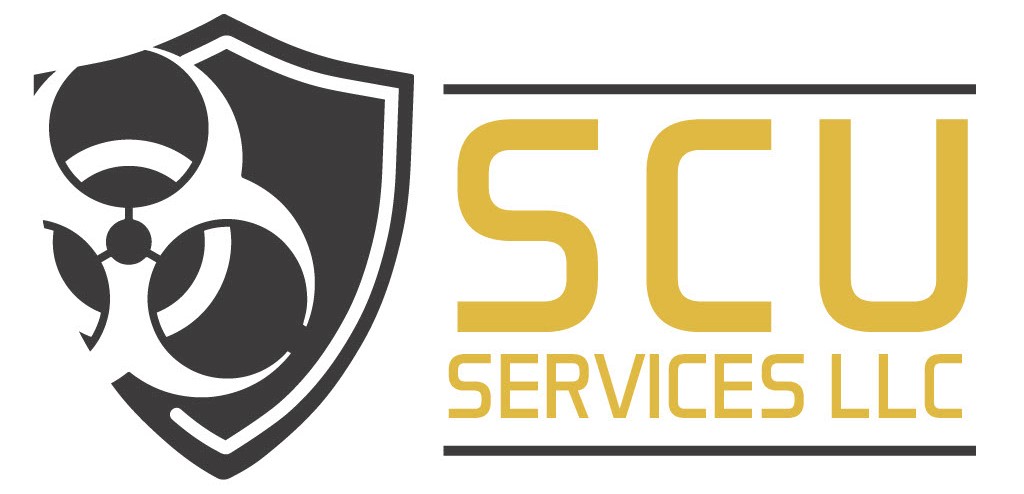Are you dreading the thought of cleaning out a loved one’s home after they pass away? Known as death cleaning or biohazard cleaning, it involves safely removing bodily fluids and hazards left behind.
As difficult as it sounds, this specialized type of cleaning is necessary to protect future occupants from exposure to infections. It requires proper training and equipment to decontaminate areas touched by the deceased.
Removing all biohazards is key so the home can be safely occupied or sold without lingering health risks. Getting started is often the hardest part, but seeking professional help can make the process less stressful.
What Makes a Scene a Biohazard:
Cleaning up after certain situations requires extra care and caution. A biohazard scene can pose serious risks if not handled properly. Here are some factors that indicate a biohazard:
- Bodily fluids present – Fluids like blood, vomit or urine may hold harmful viruses and bacteria.
- Exposure to infections – Materials touched by someone suffering from a contagious illness.
- Rotting/decomposing materials – Decay releases microbes and pathogens into the air.
- Toxic substances – Scenes involving illegal drugs, chemical spills or radiation require specialized cleanup.
- Signs of illness or injury – Look for signs the person was sick, injured or died on-scene.
- Unknown contents – If it’s unclear what’s involved, assume hazards exist until proven otherwise.
Proper training, equipment and disposal are vital for the safety of the cleaning crew and future occupants/users of the area. Identifying biohazard traits helps determine handling requirements.
The Purpose of Biohazard Cleaning:
While dealing with biohazards can be distressing, proper handling is essential for everyone’s well-being. Biohazard cleaning aims to:
- Ensure safety of all property users going forward by removing sources of infection.
- Eliminate contaminants that put health at risk through thorough disinfection of impacted areas.
- Allow normal activities to safely resume at locations like homes or businesses after hazardous incidents.
- Protect cleaning crews, first responders and future visitors from contacting illnesses left behind.
- Allow for health inspection and clearance so sites can be reoccupied without lingering risks.
- Safely remove biological threats from crime scenes or properties before next use.
- Adhere to standards required by occupational safety and environmental regulations.
The goals of biohazard remediation are to protect everyone potentially exposed by removing all traces of hazardous materials from the scene.
How Professionals Handle Biohazard Cleaning?
Dealing with biohazards requires specific expertise to guarantee safety. Professional cleaning companies like SCU Services use controlled techniques developed for this work. They utilize:
- Trained technicians certified in forensic cleanup methods to handle each job securely.
- Medical-grade, EPA-approved chemicals made for eliminating contaminants found in bodily fluids and decomposed materials.
- Tools tailored for extraction of soaked porous items and equipment that contain bioaerosols to prevent exposure during cleanup.
- PPE worn by all crew keeping them protected from hazards while on task.
- Oversight ensuring work follows EPA, OSHA and industry-established protocols for packaging and disposal of hazardous waste.
- Documentation of each cleanup for quality assurance and compliance with regulatory oversight.
SCU Services proudly serves Kentucky, Ohio, Indiana, Tennessee, and West Virginia. For professional biohazard remediation 24/7, call 866-614-1638.
Death Cleaning – What’s Involved:
Cleaning up after the passing of a loved one can be an emotional ordeal. Death cleaning services handle this delicate work respectfully while thoroughly disinfecting impacted areas of the home. The process typically includes:
–Deep sanitizing of rooms where the person spent time or passed away using appropriate cleaning chemicals.
–Thorough washing or replacement of soft surfaces like curtains, mattresses, upholstered furniture etc. that may have absorbed contaminants.
–Careful extraction or sanitization of carpets and deep cleaning of hard floors.
–Special handling and containment of any remains, medical supplies or hazardous waste.
–Respectful sorting and cleaning of personal items, photos and memorabilia for returning to family.
–Disinfection of high-touch surfaces like doorknobs, light switches, fixtures and toilets.
Having professionals manage the sanitizing aspects allows families to focus on grieving and going through cherished possessions.
Why Hire Certified Cleaners?
Dealing with the cleanup after loss can add undue stress during an already hard time. Experienced professionals take the burden off your shoulders. Here are important reasons to hire certified death cleaners:
- Thoroughly disinfect the home according to health department standards before continued use or sale.
- Ensure all biohazards are removed safely using approved containment and disposal practices.
- Spare you from direct exposure to physical and emotional aspects of the cleaning process.
- Allow peace of mind knowing the job meets regulatory compliance requirements.
- Handle sentimental items, documents and personal effects with utmost care and sensitivity.
- Save you time and effort better spent commemorating your loved one without cleaning worries.
Trained experts can lessen your load so you can grieve without additional concerns about comprehensive disinfection or legal compliance.
